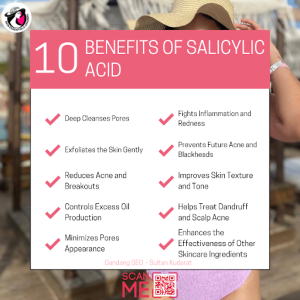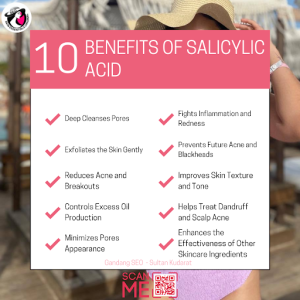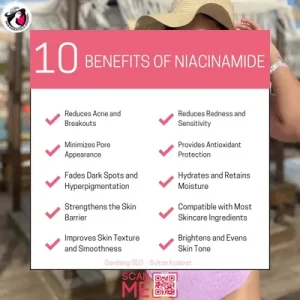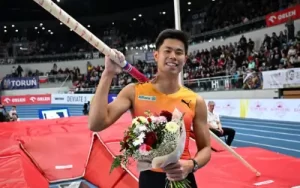A legal firestorm has erupted in the Philippine entertainment world! 🔥 A fictional libel lawsuit between controversial filmmaker Darryl Yap 🎬 and veteran comedian Vic Sotto 📺 has taken a dramatic turn with the issuance of a gag order. 🤐 Adding fuel to the fire? The decades-old Pepsi Paloma case has resurfaced, casting a long shadow over the proceedings. 🤯
Now, Yap is making a new move, asking the court to consolidate multiple cases. What led to this legal battle? What are the implications of a gag order and case consolidation in the Philippines? And how does the Pepsi Paloma controversy factor into this complex situation? 🤔
Dive in as we explore the details of this hypothetical case and its potential impact. 👇
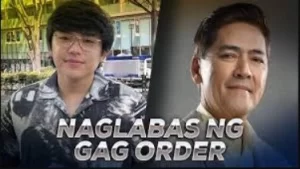
ADVERTISEMENT

🚨 Gag Order Issued in Fictional Yap-Sotto Libel Case Amidst Resurfaced Pepsi Paloma Controversy; Yap Asks Court to Consolidate Cases 📰
Table of Contents
The Fictional Libel Lawsuit: Darryl Yap’s Films vs. Vic Sotto’s Reputation
In this hypothetical scenario, a legal battle has ignited between two prominent figures in Philippine entertainment: Darryl Yap, the director known for his provocative films under the VinCentiments banner, and Vic Sotto, a long-established comedian, actor, and television host. Sotto’s legal team has filed a libel suit against Yap, alleging that the filmmaker’s recent works have made damaging and defamatory statements about Sotto.
Key Allegations in the Fictional Case:
- Insinuations in Yap’s Films: Yap’s films, which often tackle historical and political subjects with a controversial and satirical lens, are said to have included scenes and dialogue that allude to Vic Sotto’s alleged involvement in the Pepsi Paloma case.
- Damage to Reputation: Sotto’s legal team argues that these portrayals, even if fictionalized, have caused significant harm to his reputation and standing in the entertainment industry and the public eye.
- Libelous Content: The lawsuit claims that Yap’s films contain false and malicious statements presented as fact, thus meeting the legal criteria for libel under Philippine law.
Yap Asks Court to Consolidate Cases
In a new development, Darryl Yap’s legal team has reportedly filed a motion to consolidate multiple cases related to the libel suit. This legal maneuver suggests that there may be other pending cases involving similar issues or parties.
Reasons for Requesting Consolidation:
- Judicial Economy: Consolidating cases can streamline the legal process, saving time and resources for both the court and the parties involved.
- Consistency in Rulings: Consolidation can help ensure that similar legal issues are addressed consistently, avoiding potentially conflicting rulings from different judges or courts.
- Efficiency: Handling related cases together can prevent duplication of effort and make it easier to manage evidence and witnesses.
Possible Implications of Consolidation:
- Stronger Case for Yap: If the cases involve similar allegations or defenses, consolidation could potentially strengthen Yap’s overall legal position by presenting a unified front.
- More Complex Proceedings: Consolidation could also make the legal proceedings more complex, as the court will need to consider multiple sets of facts and arguments.
- Impact on Gag Order: The scope and application of the existing gag order may need to be reviewed or modified if the cases are consolidated.
Understanding Gag Orders in the Philippine Legal System 🇵🇭
A gag order, also known as a “suppression order” or “silence order,” is a legal directive issued by a court that restricts individuals, parties, or entities involved in a case from publicly discussing or disseminating information related to that case.
Purpose of Gag Orders in the Philippines:
| Objective | Description |
|---|---|
| Preventing Prejudice | To ensure a fair trial by limiting the dissemination of information that could influence potential jurors or witnesses, thus safeguarding the impartiality of the judicial process. |
| Protecting Integrity | To maintain order and decorum within the court and prevent the case from being tried in the media, which could undermine the authority and credibility of the judicial system. |
| Safeguarding Rights | To protect the accused’s right to a fair trial, as guaranteed by the Philippine Constitution, by preventing undue prejudice and ensuring that the case is decided based on evidence presented in court, not public opinion. |
Implications of a Gag Order:
- Limited Public Discussion: Parties involved are prohibited from speaking publicly about the case.
- Restrictions on Media Coverage: News outlets may be restricted in what they can report about the case.
- Potential Penalties: Violating a gag order can result in contempt of court charges, fines, or even imprisonment.
The Pepsi Paloma Case: A Shadow from the Past
The Pepsi Paloma case, a scandal that rocked the Philippine entertainment industry in the 1980s, has resurfaced in public discourse, adding another layer of complexity to the fictional Yap-Sotto legal battle.
Key Details of the Pepsi Paloma Case:
- Paloma’s Allegations: In 1982, Pepsi Paloma, whose real name was Delia Dueñas Smith, a 16-year-old, publicly accused Vic Sotto, Joey de Leon, and Richie D’Horsey of drugging and raping her.
- Public Apology: The case garnered significant media attention. A public apology from the three men was published in a major newspaper. This apology has, over the years, been subject to various interpretations and debates.
- Out-of-Court Settlement: The case was ultimately settled out of court, and Paloma withdrew her complaint. The terms of the settlement remain undisclosed.
- Paloma’s Death: Pepsi Paloma died in 1985 in what was officially ruled as a suicide. However, the circumstances surrounding her death have been questioned by some, fueling further speculation and conspiracy theories.
- The case of the Softdrink “Beauty” in 1980’s The case of Delia Dueñas Smith, a.k.a. Pepsi Paloma, remains one of the most controversial and talked-about cases in Philippine show business history. Delia was a soft drink beauty queen and sexy starlet when she was just 14 years old.
- Tito, Vic and Joey The case involved three prominent TV personalities: Tito Sotto, Vic Sotto, and Joey de Leon. The controversy surrounding the case has been a subject of public interest and debate for many years. The case was eventually settled out of court, and Paloma withdrew her complaint. The case continues to be a topic of discussion and speculation in the Philippines.
Resurgence in the Public Eye:
- Social Media Discussions: The case has been widely discussed and debated on various social media platforms.
- Renewed Calls for Investigation: Some individuals and groups have called for a reopening of the investigation into Paloma’s case and death.
- Impact on Public Perception: The renewed attention has undoubtedly affected public perception of the individuals allegedly involved.
The Hypothetical Gag Order’s Impact: Balancing Act ⚖️
The gag order in this fictional libel case between Darryl Yap and Vic Sotto would have significant implications:
- Restrictions on Yap and Sotto: Both parties, their legal teams, and potentially witnesses would be prohibited from publicly discussing the case, including details about Yap’s films and any connection to the Pepsi Paloma case.
- Impact on Media Coverage: News outlets would be limited in their reporting, potentially restricted to only factual accounts of court proceedings without commentary or speculation on the case’s merits.
- Effect on Public Discourse: The gag order could dampen public discussion and debate about the case, particularly on social media, where Yap has a significant following.
- Potential for Controversy: Gag orders, while sometimes necessary, can be controversial, as they can be perceived as limiting freedom of speech and the public’s right to know.
Frequently Asked Questions (FAQs)
What is libel under Philippine law?
Libel is a public and malicious imputation of a crime, a vice, or a defect, real or imaginary, or any act, omission, condition, status, or circumstance tending to cause the dishonor, discredit, or contempt of a natural or juridical person, or to blacken the memory of one who is dead. It can be committed through writing, printing, or similar means.
Why would a court issue a gag order?
A court may issue a gag order to prevent prejudice to a fair trial, protect the integrity of the proceedings, and safeguard the rights of the accused.
What are the penalties for violating a gag order in the Philippines?
Violation of a gag order can result in contempt of court charges, which may lead to fines or imprisonment.
What is the current status of the Pepsi Paloma case?
The Pepsi Paloma case was settled out of court in the 1980s. However, it has resurfaced in public discussions in recent years.
Has Darryl Yap been involved in any other legal controversies?
Darryl Yap is a controversial figure known for his provocative films and online content. While this specific case with Vic Sotto is fictional, Yap has faced criticism and calls for boycotts related to his work.
What are the possible outcomes of this fictional libel case?
If Sotto were to win the fictional case, Yap could face penalties such as fines or being ordered to issue a public apology. If Yap were to win, the case would be dismissed. The gag order could be lifted after the case is resolved.
What does it mean to consolidate cases?
Case consolidation means combining two or more related legal cases into a single case. This is done to streamline proceedings, ensure consistency in rulings, and improve judicial efficiency.
TechWirings Disclaimer 👨💻
TechWirings informs that this article presents a hypothetical legal scenario involving real individuals for informational and illustrative purposes only. It is not a factual account of actual ongoing legal proceedings. The details of the fictional libel case, the application of the gag order, the request for case consolidation, and any connection to the Pepsi Paloma case are speculative and created for this article.
The information provided should not be considered legal advice or a definitive statement on the legal positions of any individuals mentioned. TechWirings is not responsible for any actions taken based on this fictional scenario.
References 📚
- The Revised Penal Code of the Philippines (Act No. 3815).
- Rules of Court, Supreme Court of the Philippines.
- “Cybercrime Prevention Act of 2012” (Republic Act No. 10175).
- Supreme Court decisions on libel and freedom of speech in the Philippines.
- News articles and online discussions about the Pepsi Paloma case.
- Darryl Yap’s official Facebook page and YouTube channel (VinCentiments).
- Various articles and opinion pieces on freedom of speech and media ethics in the Philippines.
- ChatGPT
- Gemini

